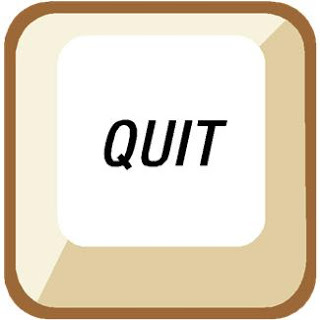Edie Melson's Blog, page 376
May 30, 2015
Refuse Average
So often, I'm afraid we aim too low. How do you rise above average?
 Refuse to be average. Let your heart soar as high as it will. ~A.W. TozerShare your thoughts in the comment section below.
Refuse to be average. Let your heart soar as high as it will. ~A.W. TozerShare your thoughts in the comment section below.
I also invite you to use this image any way you like online. Post it to your blog, share it on Facebook, Twitter, Pinterest, anywhere you'd like. All I ask is that you keep it intact, with my website watermark visible.
Don't forget to join the conversation!Blessings,Edie
 Refuse to be average. Let your heart soar as high as it will. ~A.W. TozerShare your thoughts in the comment section below.
Refuse to be average. Let your heart soar as high as it will. ~A.W. TozerShare your thoughts in the comment section below. I also invite you to use this image any way you like online. Post it to your blog, share it on Facebook, Twitter, Pinterest, anywhere you'd like. All I ask is that you keep it intact, with my website watermark visible.
Don't forget to join the conversation!Blessings,Edie
Published on May 30, 2015 01:00
May 29, 2015
The ABCs of the Writer's Life—26 Tips to Take Your Writing to the Next Level
by Edie Melson @EdieMelson
 Ais for Abundance. Write out of the overflow. Feed your soul and you'll always have the words you need to sustain your calling.
Ais for Abundance. Write out of the overflow. Feed your soul and you'll always have the words you need to sustain your calling.
Bis for Bravery. Don't shrink from the hard stuff, whether it's tough topics or just the courage to continue.
C is for Commonplace. Don't overlook the magic and beauty that surrounds you. It's the spaces between that often add depth and meaning to our words.Dis for the Details. Excellence is found in attention to every aspect of our craft.
E is for Encouragement. Use your words to encourage others along the way. Words have great power. Wield yours for good.
Fis for Finite. Our time here on earth is limited, don't waste time and energy on what might occur. Work to make your dream come true.
 Gis for Gratitude. As frustrating as this love of words can be at times, it truly is a gift. Don't ever take it for granted.
Gis for Gratitude. As frustrating as this love of words can be at times, it truly is a gift. Don't ever take it for granted.
His for Hilarity. Don't forget to take time to see the humor that crops up unexpectedly. Laugh at yourself, at the circumstances, and especially at those who irritate you.
Iis for . . . well . . . I. Don't neglect yourself. Take care of your body, your mind, and especially your soul.
J is for Jena se' qua. Which is French for that certain, indefinable quality that makes each of us special. Never doubt how incredibly special you are!
Kis for Keeping on. Don't ever quit, no matter what.
Lis for Lessons Learned. Sometimes the knowledge we have comes from our own experience, but often times it's gleaned from the experiences of those around us.
 Mis for Muscles. Writing is hard work. Keep up a regular writing schedule to stay in shape and continue to grow in your craft.
Mis for Muscles. Writing is hard work. Keep up a regular writing schedule to stay in shape and continue to grow in your craft.
Nis for No. Time to write comes only when we make the choice. Saying yes to writing means saying no to something else.
Ois for Only. Only you can write from your one-of-a-kind perspective. Yes,we all have shared experiences and circumstances, but those are filtered through each of us, making our voice unique.
Pis for Position. Ignore those behind you or you'll grow conceited, don't envy those in front or you'll grow discouraged. Instead look within and see the possibilities.
Qis for Quantity. Learn to write a certain amount every day, whether you find yourself in the mood or not. It's this discipline that will sustain you in the tough times to come.
Ris for Respect. Respect yourself for following your dream and being brave enough to say the words, "I am a writer."
 Sis for Sadness. Embrace the full range of human emotions in your writing. A diet of nothing but sweetness and light cannot sustain anyone for very long.
Sis for Sadness. Embrace the full range of human emotions in your writing. A diet of nothing but sweetness and light cannot sustain anyone for very long.
Tis for Talent and Time. Talent will get you nowhere, but time can lead you into forever.
Uis for Unless. Unless you answer the call, your story may never be told.
Vis for Villain. Never underestimate the power of a good villain to make a hero great—in a story and in life.
Wis for What if. Two magical words that lead to an infinite world of possibilities through the pen of a writer.
 Xis for, Xylophone. Sometimes you have to hit it with a hammer to make the music heard.
Xis for, Xylophone. Sometimes you have to hit it with a hammer to make the music heard.
Yis for Yes. Take a chance on success. Make it a habit to say yes to some of the scary opportunities that come your way.
Z is for Zigzag. I've found that as a writer, the most interesting path from point A to point B is rarely in a straight line. Almost all the good stuff is found in the detours.
TWEETABLES
The ABCs of the Writer's Life - 26 Tips to Take Your #Writing to the Next Level - @EdieMelson (Click to Tweet)
Sometimes taking your #writing to the next level means going back to the basics - @EdieMelson (Click to Tweet)
 Ais for Abundance. Write out of the overflow. Feed your soul and you'll always have the words you need to sustain your calling.
Ais for Abundance. Write out of the overflow. Feed your soul and you'll always have the words you need to sustain your calling.Bis for Bravery. Don't shrink from the hard stuff, whether it's tough topics or just the courage to continue.
C is for Commonplace. Don't overlook the magic and beauty that surrounds you. It's the spaces between that often add depth and meaning to our words.Dis for the Details. Excellence is found in attention to every aspect of our craft.
E is for Encouragement. Use your words to encourage others along the way. Words have great power. Wield yours for good.
Fis for Finite. Our time here on earth is limited, don't waste time and energy on what might occur. Work to make your dream come true.
 Gis for Gratitude. As frustrating as this love of words can be at times, it truly is a gift. Don't ever take it for granted.
Gis for Gratitude. As frustrating as this love of words can be at times, it truly is a gift. Don't ever take it for granted.His for Hilarity. Don't forget to take time to see the humor that crops up unexpectedly. Laugh at yourself, at the circumstances, and especially at those who irritate you.
Iis for . . . well . . . I. Don't neglect yourself. Take care of your body, your mind, and especially your soul.
J is for Jena se' qua. Which is French for that certain, indefinable quality that makes each of us special. Never doubt how incredibly special you are!
Kis for Keeping on. Don't ever quit, no matter what.
Lis for Lessons Learned. Sometimes the knowledge we have comes from our own experience, but often times it's gleaned from the experiences of those around us.
 Mis for Muscles. Writing is hard work. Keep up a regular writing schedule to stay in shape and continue to grow in your craft.
Mis for Muscles. Writing is hard work. Keep up a regular writing schedule to stay in shape and continue to grow in your craft.Nis for No. Time to write comes only when we make the choice. Saying yes to writing means saying no to something else.
Ois for Only. Only you can write from your one-of-a-kind perspective. Yes,we all have shared experiences and circumstances, but those are filtered through each of us, making our voice unique.
Pis for Position. Ignore those behind you or you'll grow conceited, don't envy those in front or you'll grow discouraged. Instead look within and see the possibilities.
Qis for Quantity. Learn to write a certain amount every day, whether you find yourself in the mood or not. It's this discipline that will sustain you in the tough times to come.
Ris for Respect. Respect yourself for following your dream and being brave enough to say the words, "I am a writer."
 Sis for Sadness. Embrace the full range of human emotions in your writing. A diet of nothing but sweetness and light cannot sustain anyone for very long.
Sis for Sadness. Embrace the full range of human emotions in your writing. A diet of nothing but sweetness and light cannot sustain anyone for very long.Tis for Talent and Time. Talent will get you nowhere, but time can lead you into forever.
Uis for Unless. Unless you answer the call, your story may never be told.
Vis for Villain. Never underestimate the power of a good villain to make a hero great—in a story and in life.
Wis for What if. Two magical words that lead to an infinite world of possibilities through the pen of a writer.
 Xis for, Xylophone. Sometimes you have to hit it with a hammer to make the music heard.
Xis for, Xylophone. Sometimes you have to hit it with a hammer to make the music heard.Yis for Yes. Take a chance on success. Make it a habit to say yes to some of the scary opportunities that come your way.
Z is for Zigzag. I've found that as a writer, the most interesting path from point A to point B is rarely in a straight line. Almost all the good stuff is found in the detours.
TWEETABLES
The ABCs of the Writer's Life - 26 Tips to Take Your #Writing to the Next Level - @EdieMelson (Click to Tweet)
Sometimes taking your #writing to the next level means going back to the basics - @EdieMelson (Click to Tweet)
Published on May 29, 2015 01:00
May 28, 2015
Know What You Write
by Henry McLaughlin @RiverbendSagas
 Many of us have heard the statement, “Write what you know” so often it has become a cliché.
Many of us have heard the statement, “Write what you know” so often it has become a cliché.
It intimidated me the first time I heard. Write what I know? I don’t know all that much that would make a good story. To me, my life was the opposite of Hitchcock’s definition of a movie: life with the dull parts taken out. Mine had all the dull parts left in. I’d had some traumatic and horrific experiences, like the death of a son. Fighting the siren song of alcohol. Making decisions in my work in public child welfare that would change a child’s life forever. All were—and many still are—too close, the emotions too raw.
Besides, I wanted to write what I enjoy: stories with mystery and suspense in unique story worlds.
Then the revelation came: Know What I Write.
 When I had the idea for my first novel, Journey to Riverbend, I knew it would be either Science Fiction or a Western. The novel needed a significant amount of time to pass where the characters would be out of communication. These two genres were the best fit.
When I had the idea for my first novel, Journey to Riverbend, I knew it would be either Science Fiction or a Western. The novel needed a significant amount of time to pass where the characters would be out of communication. These two genres were the best fit.
And, because they were two of my most favorite genres to read, I had a head start and was into that second cliché of writing: Read what you write. Study your genre, see what the expectations are, learn how story worlds are built and populated.
I also needed to know how to write: Studying the craft came next. Books, magazines, workshops, conferences. The Christian Writers Guild courses of Apprentice, Journeyman, and Craftsman. Being led to a generous mentor, finding critique partners and groups.
Knowing what I write also means research. For Journey to Riverbend, this meant digging into weapons, stagecoaches, trains, the economy, and religion. Being a history major in college, the research methods were still there. Just a tad rusty but a little mental WD-40 and they came back. And so much easier with the Internet.
 Write what you know is still excellent advice. Those true life stories I mentioned earlier do come out in my writing. Digging into my own experiences helps me discover those emotions and conflicts I want to place in my characters. What fear feels like to me helps me show it in my characters.
Write what you know is still excellent advice. Those true life stories I mentioned earlier do come out in my writing. Digging into my own experiences helps me discover those emotions and conflicts I want to place in my characters. What fear feels like to me helps me show it in my characters.
Any feeling we ever experience is still in us, in our memory, ready to help develop real and complex characters. Pull it out, make it worse for our character and put it in the book.
Knowing what you write is equally valuable in making what you know a meaningful experience for your reader.What are some techniques you’ve discovered to help you know what you write?
How do you use what you know to improve your story telling? Be sure to share your thoughts in the comments section below.
TWEETABLE
Don't stop with write what you know, KNOW what you write - Henry McLaughlin @RiverbendSagas (Click to Tweet)
Turn "Write what you know" upside down with Henry McLaughlin, @Riverbendsagas on @EdieMelson (Click to Tweet)
 Henry’s debut novel, Journey to Riverbend, won the 2009 Operation First Novel contest. He serves as Associate Director of North Texas Christian Writers. Henry edits novels, leads critique groups, and teaches at conferences and workshops. He enjoys mentoring and coaching individual writers. Connect with Henry on his blog, Twitter and Facebook.
Henry’s debut novel, Journey to Riverbend, won the 2009 Operation First Novel contest. He serves as Associate Director of North Texas Christian Writers. Henry edits novels, leads critique groups, and teaches at conferences and workshops. He enjoys mentoring and coaching individual writers. Connect with Henry on his blog, Twitter and Facebook.
 Many of us have heard the statement, “Write what you know” so often it has become a cliché.
Many of us have heard the statement, “Write what you know” so often it has become a cliché.It intimidated me the first time I heard. Write what I know? I don’t know all that much that would make a good story. To me, my life was the opposite of Hitchcock’s definition of a movie: life with the dull parts taken out. Mine had all the dull parts left in. I’d had some traumatic and horrific experiences, like the death of a son. Fighting the siren song of alcohol. Making decisions in my work in public child welfare that would change a child’s life forever. All were—and many still are—too close, the emotions too raw.
Besides, I wanted to write what I enjoy: stories with mystery and suspense in unique story worlds.
Then the revelation came: Know What I Write.
 When I had the idea for my first novel, Journey to Riverbend, I knew it would be either Science Fiction or a Western. The novel needed a significant amount of time to pass where the characters would be out of communication. These two genres were the best fit.
When I had the idea for my first novel, Journey to Riverbend, I knew it would be either Science Fiction or a Western. The novel needed a significant amount of time to pass where the characters would be out of communication. These two genres were the best fit.And, because they were two of my most favorite genres to read, I had a head start and was into that second cliché of writing: Read what you write. Study your genre, see what the expectations are, learn how story worlds are built and populated.
I also needed to know how to write: Studying the craft came next. Books, magazines, workshops, conferences. The Christian Writers Guild courses of Apprentice, Journeyman, and Craftsman. Being led to a generous mentor, finding critique partners and groups.
Knowing what I write also means research. For Journey to Riverbend, this meant digging into weapons, stagecoaches, trains, the economy, and religion. Being a history major in college, the research methods were still there. Just a tad rusty but a little mental WD-40 and they came back. And so much easier with the Internet.
 Write what you know is still excellent advice. Those true life stories I mentioned earlier do come out in my writing. Digging into my own experiences helps me discover those emotions and conflicts I want to place in my characters. What fear feels like to me helps me show it in my characters.
Write what you know is still excellent advice. Those true life stories I mentioned earlier do come out in my writing. Digging into my own experiences helps me discover those emotions and conflicts I want to place in my characters. What fear feels like to me helps me show it in my characters. Any feeling we ever experience is still in us, in our memory, ready to help develop real and complex characters. Pull it out, make it worse for our character and put it in the book.
Knowing what you write is equally valuable in making what you know a meaningful experience for your reader.What are some techniques you’ve discovered to help you know what you write?
How do you use what you know to improve your story telling? Be sure to share your thoughts in the comments section below.
TWEETABLE
Don't stop with write what you know, KNOW what you write - Henry McLaughlin @RiverbendSagas (Click to Tweet)
Turn "Write what you know" upside down with Henry McLaughlin, @Riverbendsagas on @EdieMelson (Click to Tweet)
 Henry’s debut novel, Journey to Riverbend, won the 2009 Operation First Novel contest. He serves as Associate Director of North Texas Christian Writers. Henry edits novels, leads critique groups, and teaches at conferences and workshops. He enjoys mentoring and coaching individual writers. Connect with Henry on his blog, Twitter and Facebook.
Henry’s debut novel, Journey to Riverbend, won the 2009 Operation First Novel contest. He serves as Associate Director of North Texas Christian Writers. Henry edits novels, leads critique groups, and teaches at conferences and workshops. He enjoys mentoring and coaching individual writers. Connect with Henry on his blog, Twitter and Facebook.
Published on May 28, 2015 01:00
May 27, 2015
How Far are You Willing to Extend Yourself to Write a Novel?
by DiAnn Mills @DiAnnMills
 Are you aware of the sacrifices that partner with the rewards of becoming a published writer?
Are you aware of the sacrifices that partner with the rewards of becoming a published writer?
Do you ever wonder if you’re all alone in your pursuit of publication?
Has anyone ever posed those questions to you? If not, let me give you a little advice taken from the ups and downs of the life of our friend Zaccheus.
1. Zaccheus made a decision.When Zaccheus learned Jesus was coming to his village, he made a conscious decision to see Him. No doubt he’d heard all the hype about this man who healed the sick and raised the dead. As a tax collector, Zaccheus might have questioned if Jesus paid his taxes. Surely He didn’t go about conducting miracles without getting paid.
Lesson for Writers If writing is a passion that refuses to let you go, then make the decision to be a success. Make a serious investment in your career. Writers can’t perform miracles, but they can entertain, inspire, and encourage readers.
2. Zaccheus needed a plan to be successful. Many people would be shoving through the crowds to find Jesus. Zaccheus had lots of questions, but a huge problem shot into his decision to see Him. A matter of height. Zaccheus was short in stature, and he’d always been the brunt of teasing. Two things went against his plan: his profession as a tax collector and his inability to see over a child’s level. He learned the path Jesus would take. While walking it, he discovered a tree with low branches. He would climb the tree and have an advantageous view.
Many people would be shoving through the crowds to find Jesus. Zaccheus had lots of questions, but a huge problem shot into his decision to see Him. A matter of height. Zaccheus was short in stature, and he’d always been the brunt of teasing. Two things went against his plan: his profession as a tax collector and his inability to see over a child’s level. He learned the path Jesus would take. While walking it, he discovered a tree with low branches. He would climb the tree and have an advantageous view.
Lesson for WritersWe need a plan to have our work eventually recognized. Be a diligent planner—from learning and practicing the craft, marketing and promotion, and on to living the life of a professional writer.
3. Zaccheus didn’t know how far to climb. On the day of Jesus’ visit, Zaccheus glanced up into the tree and saw the utmost branches. Before others arrived and ridiculed him, he climbed the tree, going higher and higher. Fear settled into his heart, but finally he perched on a limb that was the perfect spot. He’d be the first person to see Jesus’ arrival from afar off.
On the day of Jesus’ visit, Zaccheus glanced up into the tree and saw the utmost branches. Before others arrived and ridiculed him, he climbed the tree, going higher and higher. Fear settled into his heart, but finally he perched on a limb that was the perfect spot. He’d be the first person to see Jesus’ arrival from afar off.
Lesson for WritersSome writers are thrilled with the publication of one book. Their dreams are fulfilled, and they are satisfied with the effort to accomplish it. Other writers choose to write and publish until they breathe their last breath. If one book is all you ever want, great! But if you decide to write another and then another, don’t be afraid of the climb.
4. Zaccheus reached his heart’s desire.Contentment settled on Zaccheus. A quarter mile down the road, Jesus and His disciples slowly made their way toward him. When Jesus stood beneath the tree, he looked up at Zaccheus. “I’d like to visit your house today,” Jesus said. “We can talk. What’s for dinner?” The story doesn’t end there; Zaccheus became a follower of Jesus, leaving his past behind him.
Lesson for WritersObedience to God always brings more rewards than we ever imagined. Communicating through the written word is a gift to treasure and give to others. Watch for unexpected blessings!
Are you ready to climb that tree?
TWEETABLES
#Writing a Novel can require us to go out on a limb - thoughts about Zaccheus from @DiAnnMills (Click to Tweet)
How far are You Willing to Extend Yourself to #Write a Novel? Insight from @DiAnnMills on @EdieMelson (Click to Tweet)
 DiAnn Mills is a bestselling author who believes her readers should expect an adventure. She combines unforgettable characters with unpredictable plots to create action-packed, suspense-filled novels.
DiAnn Mills is a bestselling author who believes her readers should expect an adventure. She combines unforgettable characters with unpredictable plots to create action-packed, suspense-filled novels.
Her titles have appeared on the CBA and ECPA bestseller lists; won two Christy Awards; and been finalists for the RITA, Daphne Du Maurier, Inspirational Readers’ Choice, and Carol award contests. Library Journal presented her with a Best Books 2014: Genre Fiction award in the Christian Fiction category for Firewall.
DiAnn is a founding board member of the American Christian Fiction Writers; the 2015 president of the Romance Writers of America’s Faith, Hope, & Love chapter; a member of Advanced Writers and Speakers Association, and International Thriller Writers. She speaks to various groups and teaches writing workshops around the country. She and her husband live in sunny Houston, Texas.
DiAnn is very active online and would love to connect with readers on any of the social media platforms listed at www.diannmills.com.
 Are you aware of the sacrifices that partner with the rewards of becoming a published writer?
Are you aware of the sacrifices that partner with the rewards of becoming a published writer? Do you ever wonder if you’re all alone in your pursuit of publication?
Has anyone ever posed those questions to you? If not, let me give you a little advice taken from the ups and downs of the life of our friend Zaccheus.
1. Zaccheus made a decision.When Zaccheus learned Jesus was coming to his village, he made a conscious decision to see Him. No doubt he’d heard all the hype about this man who healed the sick and raised the dead. As a tax collector, Zaccheus might have questioned if Jesus paid his taxes. Surely He didn’t go about conducting miracles without getting paid.
Lesson for Writers If writing is a passion that refuses to let you go, then make the decision to be a success. Make a serious investment in your career. Writers can’t perform miracles, but they can entertain, inspire, and encourage readers.
2. Zaccheus needed a plan to be successful.
 Many people would be shoving through the crowds to find Jesus. Zaccheus had lots of questions, but a huge problem shot into his decision to see Him. A matter of height. Zaccheus was short in stature, and he’d always been the brunt of teasing. Two things went against his plan: his profession as a tax collector and his inability to see over a child’s level. He learned the path Jesus would take. While walking it, he discovered a tree with low branches. He would climb the tree and have an advantageous view.
Many people would be shoving through the crowds to find Jesus. Zaccheus had lots of questions, but a huge problem shot into his decision to see Him. A matter of height. Zaccheus was short in stature, and he’d always been the brunt of teasing. Two things went against his plan: his profession as a tax collector and his inability to see over a child’s level. He learned the path Jesus would take. While walking it, he discovered a tree with low branches. He would climb the tree and have an advantageous view. Lesson for WritersWe need a plan to have our work eventually recognized. Be a diligent planner—from learning and practicing the craft, marketing and promotion, and on to living the life of a professional writer.
3. Zaccheus didn’t know how far to climb.
 On the day of Jesus’ visit, Zaccheus glanced up into the tree and saw the utmost branches. Before others arrived and ridiculed him, he climbed the tree, going higher and higher. Fear settled into his heart, but finally he perched on a limb that was the perfect spot. He’d be the first person to see Jesus’ arrival from afar off.
On the day of Jesus’ visit, Zaccheus glanced up into the tree and saw the utmost branches. Before others arrived and ridiculed him, he climbed the tree, going higher and higher. Fear settled into his heart, but finally he perched on a limb that was the perfect spot. He’d be the first person to see Jesus’ arrival from afar off.Lesson for WritersSome writers are thrilled with the publication of one book. Their dreams are fulfilled, and they are satisfied with the effort to accomplish it. Other writers choose to write and publish until they breathe their last breath. If one book is all you ever want, great! But if you decide to write another and then another, don’t be afraid of the climb.
4. Zaccheus reached his heart’s desire.Contentment settled on Zaccheus. A quarter mile down the road, Jesus and His disciples slowly made their way toward him. When Jesus stood beneath the tree, he looked up at Zaccheus. “I’d like to visit your house today,” Jesus said. “We can talk. What’s for dinner?” The story doesn’t end there; Zaccheus became a follower of Jesus, leaving his past behind him.
Lesson for WritersObedience to God always brings more rewards than we ever imagined. Communicating through the written word is a gift to treasure and give to others. Watch for unexpected blessings!
Are you ready to climb that tree?
TWEETABLES
#Writing a Novel can require us to go out on a limb - thoughts about Zaccheus from @DiAnnMills (Click to Tweet)
How far are You Willing to Extend Yourself to #Write a Novel? Insight from @DiAnnMills on @EdieMelson (Click to Tweet)
 DiAnn Mills is a bestselling author who believes her readers should expect an adventure. She combines unforgettable characters with unpredictable plots to create action-packed, suspense-filled novels.
DiAnn Mills is a bestselling author who believes her readers should expect an adventure. She combines unforgettable characters with unpredictable plots to create action-packed, suspense-filled novels. Her titles have appeared on the CBA and ECPA bestseller lists; won two Christy Awards; and been finalists for the RITA, Daphne Du Maurier, Inspirational Readers’ Choice, and Carol award contests. Library Journal presented her with a Best Books 2014: Genre Fiction award in the Christian Fiction category for Firewall.
DiAnn is a founding board member of the American Christian Fiction Writers; the 2015 president of the Romance Writers of America’s Faith, Hope, & Love chapter; a member of Advanced Writers and Speakers Association, and International Thriller Writers. She speaks to various groups and teaches writing workshops around the country. She and her husband live in sunny Houston, Texas.
DiAnn is very active online and would love to connect with readers on any of the social media platforms listed at www.diannmills.com.
Published on May 27, 2015 01:00
May 26, 2015
9 Tips to Become a Resilient Writer
by Edie Melson @EdieMelson
 "The green reed which bends in the wind is stronger than the mighty oak
"The green reed which bends in the wind is stronger than the mighty oak
which breaks in a storm." ~ Confucius
It’s those writers who can bend in the hurricane force of the change that continue to find success in publishing. This is different from being tossed about, chasing fads and trends. It’s the ability to change direction when it makes sense for you. It’s a difficult line to walk, so today I’m sharing tips to become a resilient writer.The Resilient Writer: The resilient writer records every idea that comes to mind.1. Records Every Idea that Comes to Mind. In this business, contracts are cancelled and publishing houses change ownership. It’s important to have other ideas to turn to. That’s tough if we don’t keep a list of them where we can find them. I have a folder on my laptop for ideas. Every time I come up with a new one, it gets added to the list. I don’t prejudge an idea, if it pops into my head I write it down.
The resilient writer records every idea that comes to mind.1. Records Every Idea that Comes to Mind. In this business, contracts are cancelled and publishing houses change ownership. It’s important to have other ideas to turn to. That’s tough if we don’t keep a list of them where we can find them. I have a folder on my laptop for ideas. Every time I come up with a new one, it gets added to the list. I don’t prejudge an idea, if it pops into my head I write it down.
2. Reads Deep and Wide. I don’t just stick to a certain genre. I read articles, blogs, novels, and non-fiction. I read bestsellers and new indie authors. It’s important to fill our writing well with the experience of other authors.
3. Never Stops Learning. In this business, no one has ever arrived. We can’t sit on success and hatch it like an egg. Publishing is a process—the journey of a lifetime. When a writer quits investing in learning and growing, he becomes stagnant.
 The resilient writer develops alligator skin.4. Develops Alligator Skin. Rejection is part and parcel of being a writer. We have to learn that rejection of our writing isn’t the same thing as rejection of us. There are lots of reasons our writing isn’t published, and it often has nothing to do with how good the writing is.
The resilient writer develops alligator skin.4. Develops Alligator Skin. Rejection is part and parcel of being a writer. We have to learn that rejection of our writing isn’t the same thing as rejection of us. There are lots of reasons our writing isn’t published, and it often has nothing to do with how good the writing is.
5. Surrounds Herself with Like-minded Writers. There are a lot of people out there who like to talk about writing. But that doesn’t make them writers. These are the type of folks who bail when the writing life gets difficult. What you need is a core group that will challenge you to push through and keep writing—No Matter What.
 The resilient writer ignores the negative voices
The resilient writer ignores the negative voices
and keeps writing6. Ignores the Negative Voices. We all have negative voices that dog us when we write. Sometimes they’re the voices of a writers group, or a critique partner. Maybe they belong to a well-meaning (or not so well-meaning) family member or friend. Most often they are our own voices, echoing in our minds. Those voices never totally go away. But we can decide if we listen to them or not.
7. Stays Focused on the Why of Writing. For me, I write because it’s the way God made me. He created me for this purpose. To deny this would make as much sense as a dog trying to live life as a dolphin. I write because God designed me to write.
8. Develops the Art of Patience. With publishing, time moves slowly. It takes time to master the craft of writing. It also takes a certain amount of time to hear a yes or no on contracts and article acceptances. Then it takes time for those projects to come to fruition—online or in print. Every step of our writing and publishing journey takes time. When we accept this and learn to live with it, life gets so much easier.
9. Keeps Writing. Real writers write. It’s that simple and that difficult. For me it boils down to one thing. If I didn’t write, I’d die. I just don’t have a choice. My advice to you is this. If you can do something else and be content, then do it.
This is my list for becoming a resilient writer. I’d love to know what you’d add to it. Be sure to leave your thoughts in the comments section below. Don’t forget to join the conversation!Blessings,Edie
TWEETABLESBend, don’t break, plus 8 More Tips to Become a Resilient Writer - @EdieMelson (Click to Tweet)
Being resilient is a trait all successfulwriters need to cultivate – 9 tips from @EdieMelson (Click to Tweet)
 "The green reed which bends in the wind is stronger than the mighty oak
"The green reed which bends in the wind is stronger than the mighty oak which breaks in a storm." ~ Confucius
It’s those writers who can bend in the hurricane force of the change that continue to find success in publishing. This is different from being tossed about, chasing fads and trends. It’s the ability to change direction when it makes sense for you. It’s a difficult line to walk, so today I’m sharing tips to become a resilient writer.The Resilient Writer:
 The resilient writer records every idea that comes to mind.1. Records Every Idea that Comes to Mind. In this business, contracts are cancelled and publishing houses change ownership. It’s important to have other ideas to turn to. That’s tough if we don’t keep a list of them where we can find them. I have a folder on my laptop for ideas. Every time I come up with a new one, it gets added to the list. I don’t prejudge an idea, if it pops into my head I write it down.
The resilient writer records every idea that comes to mind.1. Records Every Idea that Comes to Mind. In this business, contracts are cancelled and publishing houses change ownership. It’s important to have other ideas to turn to. That’s tough if we don’t keep a list of them where we can find them. I have a folder on my laptop for ideas. Every time I come up with a new one, it gets added to the list. I don’t prejudge an idea, if it pops into my head I write it down.2. Reads Deep and Wide. I don’t just stick to a certain genre. I read articles, blogs, novels, and non-fiction. I read bestsellers and new indie authors. It’s important to fill our writing well with the experience of other authors.
3. Never Stops Learning. In this business, no one has ever arrived. We can’t sit on success and hatch it like an egg. Publishing is a process—the journey of a lifetime. When a writer quits investing in learning and growing, he becomes stagnant.
 The resilient writer develops alligator skin.4. Develops Alligator Skin. Rejection is part and parcel of being a writer. We have to learn that rejection of our writing isn’t the same thing as rejection of us. There are lots of reasons our writing isn’t published, and it often has nothing to do with how good the writing is.
The resilient writer develops alligator skin.4. Develops Alligator Skin. Rejection is part and parcel of being a writer. We have to learn that rejection of our writing isn’t the same thing as rejection of us. There are lots of reasons our writing isn’t published, and it often has nothing to do with how good the writing is.5. Surrounds Herself with Like-minded Writers. There are a lot of people out there who like to talk about writing. But that doesn’t make them writers. These are the type of folks who bail when the writing life gets difficult. What you need is a core group that will challenge you to push through and keep writing—No Matter What.
 The resilient writer ignores the negative voices
The resilient writer ignores the negative voices and keeps writing6. Ignores the Negative Voices. We all have negative voices that dog us when we write. Sometimes they’re the voices of a writers group, or a critique partner. Maybe they belong to a well-meaning (or not so well-meaning) family member or friend. Most often they are our own voices, echoing in our minds. Those voices never totally go away. But we can decide if we listen to them or not.
7. Stays Focused on the Why of Writing. For me, I write because it’s the way God made me. He created me for this purpose. To deny this would make as much sense as a dog trying to live life as a dolphin. I write because God designed me to write.
8. Develops the Art of Patience. With publishing, time moves slowly. It takes time to master the craft of writing. It also takes a certain amount of time to hear a yes or no on contracts and article acceptances. Then it takes time for those projects to come to fruition—online or in print. Every step of our writing and publishing journey takes time. When we accept this and learn to live with it, life gets so much easier.
9. Keeps Writing. Real writers write. It’s that simple and that difficult. For me it boils down to one thing. If I didn’t write, I’d die. I just don’t have a choice. My advice to you is this. If you can do something else and be content, then do it.
This is my list for becoming a resilient writer. I’d love to know what you’d add to it. Be sure to leave your thoughts in the comments section below. Don’t forget to join the conversation!Blessings,Edie
TWEETABLESBend, don’t break, plus 8 More Tips to Become a Resilient Writer - @EdieMelson (Click to Tweet)
Being resilient is a trait all successfulwriters need to cultivate – 9 tips from @EdieMelson (Click to Tweet)
Published on May 26, 2015 01:00
May 25, 2015
Memorial Day 2015—Never Forget
Published on May 25, 2015 01:00
May 24, 2015
The Worry Room vs. The “War Room”
by Brenda McGraw @BrendaMMcGraw
 When we worry, we whine. We whine about our finances, job, children and spouse. Then there is the worry that goes with aging parents who need us to assist them to the doctor or with household problems, or maybe they even live with us. What about the loved ones who are away serving our country, and we don’t even know where they are? We worry.
When we worry, we whine. We whine about our finances, job, children and spouse. Then there is the worry that goes with aging parents who need us to assist them to the doctor or with household problems, or maybe they even live with us. What about the loved ones who are away serving our country, and we don’t even know where they are? We worry.
I have never had a nineteen-year-old son go into the military and leave the country, but many have, and I can’t imagine the worry that accompanies the fear of the unknown.
Reasons for worry are everywhere. We wake up to daily concerns and go to bed with them every night. When we worry—and I venture to say we have all done this—we enter an area that, as believers, God has told us notto. He plainly says, “Do not worry.” It is easier to say, “Let go and let God” than it actually is to do it, especially when we are saying it to someone else.
 There is a room in our hearts I call the “Worry Room.” It’s full of the problems and concerns that cause us pain and anxiety. Many times we hang out in this room and start having our own little pity party. We like to include others and we bring the “whine” to make sure they empathize and suffer with us. Misery loves company.
There is a room in our hearts I call the “Worry Room.” It’s full of the problems and concerns that cause us pain and anxiety. Many times we hang out in this room and start having our own little pity party. We like to include others and we bring the “whine” to make sure they empathize and suffer with us. Misery loves company.
There is another room, however, that we can visit with better effect and it is called the “War Room.”
My husband and I were invited to attend the premiere of the new movie, War Room this past week. It opens on August 28, 2015 and is from the creators of Fireproof and Courageous . The film stars Alex Kendrick, Priscilla Shirer, T.C. Stallings, Beth Moore and Karen Abercrombie, and its theme is, “Prayer is a powerful weapon.”
As Christians, we pray. But do we pray enough? I know I don’t.
 After watching this movie, I had a much deeper desire to find a room in my home to “do war” in, on my knees. Our battle is not against flesh and blood, but against the enemy.
After watching this movie, I had a much deeper desire to find a room in my home to “do war” in, on my knees. Our battle is not against flesh and blood, but against the enemy.
“For our struggle is not against flesh and blood, but against the rulers, against the powers, against the world forces of this darkness, against the spiritual forcesof wickedness in the heavenly places. Therefore, take up the full armor of God, so that you will be able to resist in the evil day, and having done everything, to stand firm.” Ephesians 6:12-13
If we want to win the war instead of whining about the worry, we can empty out the “Worry Room” in our heart while also preparing the “War Room” in our home for prayer.
I am grateful for all the brave men and women who have served and are still serving our country. I hope we will all remember to pray for them as we celebrate Memorial Day this weekend.
And instead of worrying about their safety, or any of the concerns and problems we regularly fret about, why don’t we find a room or prayer closet in our home, open God’s word, get on our knees and pray? When we think we have prayed all we possibly can, we need to pray more.
If we pray as much as we worry, we will trust more than we stress.
 Brenda McGraw is an author and speaker who reveals how to discover joy beyond the clutter of life. She draws from her own life experiences in the #1 Amazon Best seller, “Joy Beyond, 28 Days to Finding Joy Beyond the Clutter of Life”. She is the founder of Ask God Today Ministrieswhere she has a team of writers sharing truth and hope with others.
Brenda McGraw is an author and speaker who reveals how to discover joy beyond the clutter of life. She draws from her own life experiences in the #1 Amazon Best seller, “Joy Beyond, 28 Days to Finding Joy Beyond the Clutter of Life”. She is the founder of Ask God Today Ministrieswhere she has a team of writers sharing truth and hope with others.
Brenda currently lives in South Carolina with her husband, Jeff and three of their five children. She is a survivor of breast cancer and a heart attack.. Despite the challenges she has endured, Brenda found peace through her relationship with Jesus Christ.
You can connect with Brenda at:Website - http://www.askgodtoday.comAmazon Author Page: http://www.amazon.com/Brenda-McGraw/e/B00GOIE7AG
Twitter: https://www.twitter.com/BrendaMMcGraw
 When we worry, we whine. We whine about our finances, job, children and spouse. Then there is the worry that goes with aging parents who need us to assist them to the doctor or with household problems, or maybe they even live with us. What about the loved ones who are away serving our country, and we don’t even know where they are? We worry.
When we worry, we whine. We whine about our finances, job, children and spouse. Then there is the worry that goes with aging parents who need us to assist them to the doctor or with household problems, or maybe they even live with us. What about the loved ones who are away serving our country, and we don’t even know where they are? We worry. I have never had a nineteen-year-old son go into the military and leave the country, but many have, and I can’t imagine the worry that accompanies the fear of the unknown.
Reasons for worry are everywhere. We wake up to daily concerns and go to bed with them every night. When we worry—and I venture to say we have all done this—we enter an area that, as believers, God has told us notto. He plainly says, “Do not worry.” It is easier to say, “Let go and let God” than it actually is to do it, especially when we are saying it to someone else.
 There is a room in our hearts I call the “Worry Room.” It’s full of the problems and concerns that cause us pain and anxiety. Many times we hang out in this room and start having our own little pity party. We like to include others and we bring the “whine” to make sure they empathize and suffer with us. Misery loves company.
There is a room in our hearts I call the “Worry Room.” It’s full of the problems and concerns that cause us pain and anxiety. Many times we hang out in this room and start having our own little pity party. We like to include others and we bring the “whine” to make sure they empathize and suffer with us. Misery loves company.There is another room, however, that we can visit with better effect and it is called the “War Room.”
My husband and I were invited to attend the premiere of the new movie, War Room this past week. It opens on August 28, 2015 and is from the creators of Fireproof and Courageous . The film stars Alex Kendrick, Priscilla Shirer, T.C. Stallings, Beth Moore and Karen Abercrombie, and its theme is, “Prayer is a powerful weapon.”
As Christians, we pray. But do we pray enough? I know I don’t.
 After watching this movie, I had a much deeper desire to find a room in my home to “do war” in, on my knees. Our battle is not against flesh and blood, but against the enemy.
After watching this movie, I had a much deeper desire to find a room in my home to “do war” in, on my knees. Our battle is not against flesh and blood, but against the enemy. “For our struggle is not against flesh and blood, but against the rulers, against the powers, against the world forces of this darkness, against the spiritual forcesof wickedness in the heavenly places. Therefore, take up the full armor of God, so that you will be able to resist in the evil day, and having done everything, to stand firm.” Ephesians 6:12-13
If we want to win the war instead of whining about the worry, we can empty out the “Worry Room” in our heart while also preparing the “War Room” in our home for prayer.
I am grateful for all the brave men and women who have served and are still serving our country. I hope we will all remember to pray for them as we celebrate Memorial Day this weekend.
And instead of worrying about their safety, or any of the concerns and problems we regularly fret about, why don’t we find a room or prayer closet in our home, open God’s word, get on our knees and pray? When we think we have prayed all we possibly can, we need to pray more.
If we pray as much as we worry, we will trust more than we stress.
 Brenda McGraw is an author and speaker who reveals how to discover joy beyond the clutter of life. She draws from her own life experiences in the #1 Amazon Best seller, “Joy Beyond, 28 Days to Finding Joy Beyond the Clutter of Life”. She is the founder of Ask God Today Ministrieswhere she has a team of writers sharing truth and hope with others.
Brenda McGraw is an author and speaker who reveals how to discover joy beyond the clutter of life. She draws from her own life experiences in the #1 Amazon Best seller, “Joy Beyond, 28 Days to Finding Joy Beyond the Clutter of Life”. She is the founder of Ask God Today Ministrieswhere she has a team of writers sharing truth and hope with others. Brenda currently lives in South Carolina with her husband, Jeff and three of their five children. She is a survivor of breast cancer and a heart attack.. Despite the challenges she has endured, Brenda found peace through her relationship with Jesus Christ.
You can connect with Brenda at:Website - http://www.askgodtoday.comAmazon Author Page: http://www.amazon.com/Brenda-McGraw/e/B00GOIE7AG
Twitter: https://www.twitter.com/BrendaMMcGraw
Published on May 24, 2015 01:00
May 23, 2015
Little Seeds
 Little deeds are like little seeds, they grow to flowers or to weeds. Daniel D Palmer
Little deeds are like little seeds, they grow to flowers or to weeds. Daniel D Palmer(Image taken during the 2015 Blue Ridge Mountains Christian Writers Conference at Ridgecrest Conference Center)I spent this past week at the Blue Ridge Mountains Christian Writers Conference. There were some amazing people there who did some pretty amazing things. They went out of their way to bless others.
There were also those who let the stress of circumstances influence the way they treated others.
As the co-director, I had the opportunity to see the fruit of seemingly small seeds spread by those attending. Some blossomed into beautiful flowers, and others, well, not so much.
Share your thoughts in the comment section below.
I also invite you to use this image any way you like online. Post it to your blog, share it on Facebook, Twitter, Pinterest, anywhere you'd like. All I ask is that you keep it intact, with my website watermark visible.
Don't forget to join the conversation!Blessings,Edie
Published on May 23, 2015 01:00
May 22, 2015
3 Ways I Save Money as a Writer
By Lori Hatcher @LoriHatcher2
 I was born into a frugal family. We reused, reduced, and recycled long before it was cool. When I embraced my inner self and came out of my writer’s closet, I quickly realized if I wanted to survive, I also needed to apply my family’s thrifty ways to my writing life. Today I’d like to share three ways I save money as a writer.
I was born into a frugal family. We reused, reduced, and recycled long before it was cool. When I embraced my inner self and came out of my writer’s closet, I quickly realized if I wanted to survive, I also needed to apply my family’s thrifty ways to my writing life. Today I’d like to share three ways I save money as a writer.
#1 I pay a college student to post my social media updates.
 Yes, you read this correctly. In a post about how to save money, I’m suggesting you spend money. Contradictory? Nope. Smart? Yes.
Yes, you read this correctly. In a post about how to save money, I’m suggesting you spend money. Contradictory? Nope. Smart? Yes.
Social media is a necessary and valuable way to share our blog posts, book promotions, and status updates. It helps us reach the friends of our friends’ friends—people we might never connect with otherwise. But Pinterest, Facebook, and Twitter, the three platforms on which I concentrate most my energy, take time. Valuable time. Time in which I could be writing and, on a good day, earning money.
This is why I pay a tech-savvy college student for a few hours of her time to manage my social media updates. It’s easy for her, and she can get a lot done in much less time than it takes me.
Once a week my beloved assistant schedules all my Facebook and Twitter posts through Hootsuite. Twice a day, five days a week, she hops on my Pinterest account to repin some of the posts I’ve pinned to my main board. (I pin each blog post initially, choose the image and write the description, then she repins it onto the different boards on my page.) She can do this from her laptop or smart phone in minutes, thus saving me a tremendous amount of time and energy. Easy peasy.
#2 I use the gray scale setting on my printer for paperwork that never leaves my house.
 Gray scale is a setting that determines how dark the print is on your document. When I print something intended for someone else, I want the type crisp and dark. Much of my printing, however, is only for my benefit—rough drafts, sample copies, even the electronic coupons I take to the grocery store. For these, a lighter print is fine. Using grey scale saves ink or toner. Lots of it.
Gray scale is a setting that determines how dark the print is on your document. When I print something intended for someone else, I want the type crisp and dark. Much of my printing, however, is only for my benefit—rough drafts, sample copies, even the electronic coupons I take to the grocery store. For these, a lighter print is fine. Using grey scale saves ink or toner. Lots of it.
Computer operating systems are different, but on my Windows 7, I go to the Control panel, then Hardware and Sound, View Devices and Printers, Select your printer, Adjust print options, Printing Preferences, Advanced, and finally, Greyscale or Toner Saver Mode.
The only downside to this ink-saving step is that I must remember to switch it back if I’m printing something that will be leaving the house.
#3 I recycle paper.
 For documents that are for my eyes only, I use recycled paper from the dental office where I work part time. The office manager saves it for me, and every week or so she hands me a big stack of paper printed only on one side.
For documents that are for my eyes only, I use recycled paper from the dental office where I work part time. The office manager saves it for me, and every week or so she hands me a big stack of paper printed only on one side.
Be careful with this, though. One day I looked up while my husband was preaching and discovered to my horror that the backside of his page of sermon notes had a sales ad for dental supplies. Note to self: make sure my family knows there is recycled paper in my printer BEFORE they print something that will leave the house.
If you’re looking for ways to save money while pursuing your dream to be a writer, I hope you’ll find these suggestions helpful. Paying a college student to post on social media, utilizing the Greyscale setting, and using recycled paper are three ideas that have helped me cut corners and work more efficiently.
What about you? How do you save money? Leave a comment below and join the conversation.
TWEETABLE3 Ways to save money as a writer - via @LoriHatcher2 on @EdieMelson (Click to Tweet)
 Lori Hatcher is the editor of
Reach Out, Columbia
magazine and the author of two devotional books. Her second,
Hungry for God…Starving for Time, 5-Minute Devotions for Busy Women
released in December. A blogger, writing instructor, and women’s ministry speaker, her goal is to help women connect with God in the craziness of life. You’ll find her pondering the marvelous and the mundane on her blog,
Hungry for God…Starving for Time
. Connect with her on Twitter at @LoriHatcher2 or on Facebook - Hungry for God, Starving for Time.
Lori Hatcher is the editor of
Reach Out, Columbia
magazine and the author of two devotional books. Her second,
Hungry for God…Starving for Time, 5-Minute Devotions for Busy Women
released in December. A blogger, writing instructor, and women’s ministry speaker, her goal is to help women connect with God in the craziness of life. You’ll find her pondering the marvelous and the mundane on her blog,
Hungry for God…Starving for Time
. Connect with her on Twitter at @LoriHatcher2 or on Facebook - Hungry for God, Starving for Time.
 I was born into a frugal family. We reused, reduced, and recycled long before it was cool. When I embraced my inner self and came out of my writer’s closet, I quickly realized if I wanted to survive, I also needed to apply my family’s thrifty ways to my writing life. Today I’d like to share three ways I save money as a writer.
I was born into a frugal family. We reused, reduced, and recycled long before it was cool. When I embraced my inner self and came out of my writer’s closet, I quickly realized if I wanted to survive, I also needed to apply my family’s thrifty ways to my writing life. Today I’d like to share three ways I save money as a writer.#1 I pay a college student to post my social media updates.
 Yes, you read this correctly. In a post about how to save money, I’m suggesting you spend money. Contradictory? Nope. Smart? Yes.
Yes, you read this correctly. In a post about how to save money, I’m suggesting you spend money. Contradictory? Nope. Smart? Yes.Social media is a necessary and valuable way to share our blog posts, book promotions, and status updates. It helps us reach the friends of our friends’ friends—people we might never connect with otherwise. But Pinterest, Facebook, and Twitter, the three platforms on which I concentrate most my energy, take time. Valuable time. Time in which I could be writing and, on a good day, earning money.
This is why I pay a tech-savvy college student for a few hours of her time to manage my social media updates. It’s easy for her, and she can get a lot done in much less time than it takes me.
Once a week my beloved assistant schedules all my Facebook and Twitter posts through Hootsuite. Twice a day, five days a week, she hops on my Pinterest account to repin some of the posts I’ve pinned to my main board. (I pin each blog post initially, choose the image and write the description, then she repins it onto the different boards on my page.) She can do this from her laptop or smart phone in minutes, thus saving me a tremendous amount of time and energy. Easy peasy.
#2 I use the gray scale setting on my printer for paperwork that never leaves my house.
 Gray scale is a setting that determines how dark the print is on your document. When I print something intended for someone else, I want the type crisp and dark. Much of my printing, however, is only for my benefit—rough drafts, sample copies, even the electronic coupons I take to the grocery store. For these, a lighter print is fine. Using grey scale saves ink or toner. Lots of it.
Gray scale is a setting that determines how dark the print is on your document. When I print something intended for someone else, I want the type crisp and dark. Much of my printing, however, is only for my benefit—rough drafts, sample copies, even the electronic coupons I take to the grocery store. For these, a lighter print is fine. Using grey scale saves ink or toner. Lots of it. Computer operating systems are different, but on my Windows 7, I go to the Control panel, then Hardware and Sound, View Devices and Printers, Select your printer, Adjust print options, Printing Preferences, Advanced, and finally, Greyscale or Toner Saver Mode.
The only downside to this ink-saving step is that I must remember to switch it back if I’m printing something that will be leaving the house.
#3 I recycle paper.
 For documents that are for my eyes only, I use recycled paper from the dental office where I work part time. The office manager saves it for me, and every week or so she hands me a big stack of paper printed only on one side.
For documents that are for my eyes only, I use recycled paper from the dental office where I work part time. The office manager saves it for me, and every week or so she hands me a big stack of paper printed only on one side. Be careful with this, though. One day I looked up while my husband was preaching and discovered to my horror that the backside of his page of sermon notes had a sales ad for dental supplies. Note to self: make sure my family knows there is recycled paper in my printer BEFORE they print something that will leave the house.
If you’re looking for ways to save money while pursuing your dream to be a writer, I hope you’ll find these suggestions helpful. Paying a college student to post on social media, utilizing the Greyscale setting, and using recycled paper are three ideas that have helped me cut corners and work more efficiently.
What about you? How do you save money? Leave a comment below and join the conversation.
TWEETABLE3 Ways to save money as a writer - via @LoriHatcher2 on @EdieMelson (Click to Tweet)
 Lori Hatcher is the editor of
Reach Out, Columbia
magazine and the author of two devotional books. Her second,
Hungry for God…Starving for Time, 5-Minute Devotions for Busy Women
released in December. A blogger, writing instructor, and women’s ministry speaker, her goal is to help women connect with God in the craziness of life. You’ll find her pondering the marvelous and the mundane on her blog,
Hungry for God…Starving for Time
. Connect with her on Twitter at @LoriHatcher2 or on Facebook - Hungry for God, Starving for Time.
Lori Hatcher is the editor of
Reach Out, Columbia
magazine and the author of two devotional books. Her second,
Hungry for God…Starving for Time, 5-Minute Devotions for Busy Women
released in December. A blogger, writing instructor, and women’s ministry speaker, her goal is to help women connect with God in the craziness of life. You’ll find her pondering the marvelous and the mundane on her blog,
Hungry for God…Starving for Time
. Connect with her on Twitter at @LoriHatcher2 or on Facebook - Hungry for God, Starving for Time.
Published on May 22, 2015 01:00
May 20, 2015
Social Media ABCs
by Edie Melson @EdieMelson
 Social Media doesn’t have to be difficult. These tips can take you farther, faster if you implement them into your social networking strategy.
Social Media doesn’t have to be difficult. These tips can take you farther, faster if you implement them into your social networking strategy.
A is for Answer. Think about the questions your target audience has and use social media to give them the answers. For instance, my followers want to learn how to use social networking efficiently, so I Tweet short-cuts, tips and easy solutions that take up very little time.
B is for Basics. Whatever you’re doing, make it excellent. That means take time to check for typos and readability, in your Tweets, Facebook posts and in your blog. Also be sure you’re using giving accurate links. There’s nothing more frustrating than clicking on a link that takes you nowhere.
C is for Conversation. Remember social networking is all about interaction between people. It’s NOT talking at them...it’s talking with them.
 D is for Direction. Think about what you’re trying to accomplish and be deliberate.
D is for Direction. Think about what you’re trying to accomplish and be deliberate.
E is for Effort. Social Networking feels like it should be easy. But learning a new language is never done without expending effort.
F is for Friends and Followers. These are the basis of your social interaction online. Don’t neglect them and only chase new connections. Be true to this foundation and it will sustain you over the long haul.
G is for Google Alerts.Google alerts are one of your best social networking friends. You can set up alerts to let you know when someone has mentioned you or a subject you’re interested in. And best of all, it’s a free service. Just click Google Alerts and follow the instructions.
H is for Hashtags. These are the gems in the fields of Twitter. Learn to follow Hashtags and use them correctly to increase your cyber-reach. Here’s an article I wrote about How to find Relevant Hashtags.
I is for Include. Include others more often than yourself when you send out Tweets, Posts and Updates. The litany of Me, Me, Me gets old fast in social networking.
J is for Journey. Social networking is all about the journey and the joy of discovery. It’s NOT about arriving at a static destination.
K is for KISS. KISS is an old-fashioned acronym for Keep It Simple Stupid . When you try to use too many different social networking tools you can get overwhelmed. Stick to three or four that work and leave the dabbling to others who aren’t working to become writers.
 L is for Links. Used correctly, links or (hyperlinks)can increase your visibility and make your content much more valuable to those who follow you. Not sure how? Here’s another post I wrote on the basics of links.
L is for Links. Used correctly, links or (hyperlinks)can increase your visibility and make your content much more valuable to those who follow you. Not sure how? Here’s another post I wrote on the basics of links.
M is for Mobile. In the social networking world, more and more people view your blogs, tweets and Facebook through a mobile device (phone, tablet, even e-reader). Make certain you’re mobile friendly and all your sites are optimized for mobile viewing.
N is for Nice. Nice is the basic etiquette for social networking. My grandmother would have loved social media because the rules are simple—treat others the way you want to be treated.
O is for Original. Remember that original is who you are. There isn’t another person like you anywhere. That is the essence of your value, the way you see things, share things and interact is filtered through you. Don’t be a copycat, be yourself.
P is for Permission. Just because you see it online doesn’t mean it’s yours to borrow. Remember to respect the rights of others and take time to learn a little about copyrights. To get you started, here’s a copyright quiz that can test your knowledge.
 Q is for Quit. That’s right, quit. Set a time limit for social networking and then quit when it’s reached. You’re trying to be a writer, not a full-time marketing manager.
Q is for Quit. That’s right, quit. Set a time limit for social networking and then quit when it’s reached. You’re trying to be a writer, not a full-time marketing manager.
R is for Reach. Always look for new places to reach new people. Comment on a new blog or follow a friend of a friend.
S is for Start. Many people put off social networking because they think it’s hard or unpleasant. You’ll never know till you try (sorry, that’s my grandmother again).
T is for Tease. When you compose a Blog Title, Tweet or Facebook post, don’t sum up your message. Use copywriting techniques to write effective Headlines. Tease your audience with something compelling that will encourage them to look further or interact with you and each other. In other words, become a social networking flirt!
U is for Understand. Take time to understand the social networking world. Learn the etiquette involved before you run headlong into embarrassment. Here’s an article on Twitter FAQs to help you get started.
V is for Value. This is ALWAYS the basis of your message, no matter your social networking medium. Bring value to your followers and they’ll be friends for life.
W is for Wait. There are lots of people out there who are trying to sell you a shortcut to friends and followers. The problem is that audience is fickle. Take time to build your network through value and personal relationships and your numbers will mean something—to you and to potential publishers.
 X is for X-ray. Make certain the bones of your social networking strategy are strong. Take time to build a solid framework and you’ll spend less time and get more results.
X is for X-ray. Make certain the bones of your social networking strategy are strong. Take time to build a solid framework and you’ll spend less time and get more results.
Y is for YouTube. Videos are popular on Twitter, Facebook and in Blogs. Learn to leverage the use of videos to add value and fun to your relationships.
Z is for Zoo. Yes the whole social media thing is a bit of a zoo. I tell people truthfully, if you don’t feel like you’re behind in learning everything then you’re doing something right. It doesn’t matter who you are, NO ONE can know everything about social media, the field is just expanding too quickly.
Now it's your turn, what have you found most helpful with managing your social networking connections?
Don't forget to join the conversation!Blessings,Edie
TWEETABLES
Learn to connect online by mastering the basics - #SocialMedia ABCs - via @EdieMelson (Click to Tweet)
Social Media ABCs - it's not as difficult as you think! via @EdieMelson (Click to Tweet)
 Social Media doesn’t have to be difficult. These tips can take you farther, faster if you implement them into your social networking strategy.
Social Media doesn’t have to be difficult. These tips can take you farther, faster if you implement them into your social networking strategy.A is for Answer. Think about the questions your target audience has and use social media to give them the answers. For instance, my followers want to learn how to use social networking efficiently, so I Tweet short-cuts, tips and easy solutions that take up very little time.
B is for Basics. Whatever you’re doing, make it excellent. That means take time to check for typos and readability, in your Tweets, Facebook posts and in your blog. Also be sure you’re using giving accurate links. There’s nothing more frustrating than clicking on a link that takes you nowhere.
C is for Conversation. Remember social networking is all about interaction between people. It’s NOT talking at them...it’s talking with them.
 D is for Direction. Think about what you’re trying to accomplish and be deliberate.
D is for Direction. Think about what you’re trying to accomplish and be deliberate.E is for Effort. Social Networking feels like it should be easy. But learning a new language is never done without expending effort.
F is for Friends and Followers. These are the basis of your social interaction online. Don’t neglect them and only chase new connections. Be true to this foundation and it will sustain you over the long haul.
G is for Google Alerts.Google alerts are one of your best social networking friends. You can set up alerts to let you know when someone has mentioned you or a subject you’re interested in. And best of all, it’s a free service. Just click Google Alerts and follow the instructions.
H is for Hashtags. These are the gems in the fields of Twitter. Learn to follow Hashtags and use them correctly to increase your cyber-reach. Here’s an article I wrote about How to find Relevant Hashtags.
I is for Include. Include others more often than yourself when you send out Tweets, Posts and Updates. The litany of Me, Me, Me gets old fast in social networking.
J is for Journey. Social networking is all about the journey and the joy of discovery. It’s NOT about arriving at a static destination.
K is for KISS. KISS is an old-fashioned acronym for Keep It Simple Stupid . When you try to use too many different social networking tools you can get overwhelmed. Stick to three or four that work and leave the dabbling to others who aren’t working to become writers.
 L is for Links. Used correctly, links or (hyperlinks)can increase your visibility and make your content much more valuable to those who follow you. Not sure how? Here’s another post I wrote on the basics of links.
L is for Links. Used correctly, links or (hyperlinks)can increase your visibility and make your content much more valuable to those who follow you. Not sure how? Here’s another post I wrote on the basics of links. M is for Mobile. In the social networking world, more and more people view your blogs, tweets and Facebook through a mobile device (phone, tablet, even e-reader). Make certain you’re mobile friendly and all your sites are optimized for mobile viewing.
N is for Nice. Nice is the basic etiquette for social networking. My grandmother would have loved social media because the rules are simple—treat others the way you want to be treated.
O is for Original. Remember that original is who you are. There isn’t another person like you anywhere. That is the essence of your value, the way you see things, share things and interact is filtered through you. Don’t be a copycat, be yourself.
P is for Permission. Just because you see it online doesn’t mean it’s yours to borrow. Remember to respect the rights of others and take time to learn a little about copyrights. To get you started, here’s a copyright quiz that can test your knowledge.
 Q is for Quit. That’s right, quit. Set a time limit for social networking and then quit when it’s reached. You’re trying to be a writer, not a full-time marketing manager.
Q is for Quit. That’s right, quit. Set a time limit for social networking and then quit when it’s reached. You’re trying to be a writer, not a full-time marketing manager.R is for Reach. Always look for new places to reach new people. Comment on a new blog or follow a friend of a friend.
S is for Start. Many people put off social networking because they think it’s hard or unpleasant. You’ll never know till you try (sorry, that’s my grandmother again).
T is for Tease. When you compose a Blog Title, Tweet or Facebook post, don’t sum up your message. Use copywriting techniques to write effective Headlines. Tease your audience with something compelling that will encourage them to look further or interact with you and each other. In other words, become a social networking flirt!
U is for Understand. Take time to understand the social networking world. Learn the etiquette involved before you run headlong into embarrassment. Here’s an article on Twitter FAQs to help you get started.
V is for Value. This is ALWAYS the basis of your message, no matter your social networking medium. Bring value to your followers and they’ll be friends for life.
W is for Wait. There are lots of people out there who are trying to sell you a shortcut to friends and followers. The problem is that audience is fickle. Take time to build your network through value and personal relationships and your numbers will mean something—to you and to potential publishers.
 X is for X-ray. Make certain the bones of your social networking strategy are strong. Take time to build a solid framework and you’ll spend less time and get more results.
X is for X-ray. Make certain the bones of your social networking strategy are strong. Take time to build a solid framework and you’ll spend less time and get more results.Y is for YouTube. Videos are popular on Twitter, Facebook and in Blogs. Learn to leverage the use of videos to add value and fun to your relationships.
Z is for Zoo. Yes the whole social media thing is a bit of a zoo. I tell people truthfully, if you don’t feel like you’re behind in learning everything then you’re doing something right. It doesn’t matter who you are, NO ONE can know everything about social media, the field is just expanding too quickly.
Now it's your turn, what have you found most helpful with managing your social networking connections?
Don't forget to join the conversation!Blessings,Edie
TWEETABLES
Learn to connect online by mastering the basics - #SocialMedia ABCs - via @EdieMelson (Click to Tweet)
Social Media ABCs - it's not as difficult as you think! via @EdieMelson (Click to Tweet)
Published on May 20, 2015 03:38




